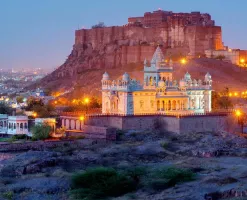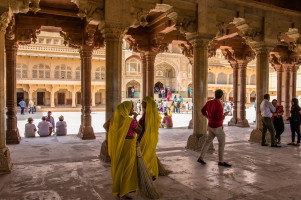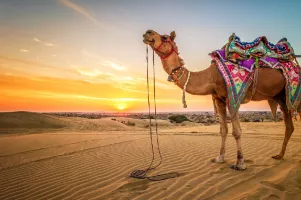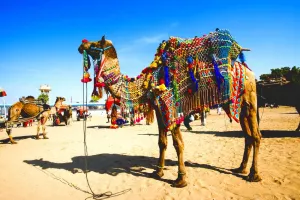
Mount Serapong Travel Guide
Mount Serapong is a picturesque destination located in the heart of Southeast Asia, known for its stunning landscapes, rich history, and vibrant culture. This majestic mountain offers visitors a unique blend of natural beauty and cultural experiences that make it a must-visit destination for travelers from around the world.Top Attractions in Mount Serapong
- Summit Trail for breathtaking views
- Historic Serapong Fortress
- Majestic Serapong Waterfall
- Cultural Village showcasing local traditions
- Adventurous Jungle Trekking
Mount Serapong is Famous for
Its serene natural beauty and rich cultural heritage.Top Attractions in Mount Serapong
- Summit Trail for breathtaking views
- Historic Serapong Fortress
- Majestic Serapong Waterfall
- Cultural Village showcasing local traditions
- Adventurous Jungle Trekking
What's Great about Travelling to Mount Serapong?
- Perfect destination for nature lovers
- Great for adventure enthusiasts
- Offers a peaceful retreat for relaxation
What's Not So Great about Travelling to Mount Serapong?
- Not ideal for travelers seeking a bustling city experience
- Limited nightlife options
- May not be suitable for those with mobility issues due to terrain
Travel Tips for Mount Serapong
- Check visa requirements before traveling
- Opt for local guides for a richer experience
- Respect the local culture and traditions
Important Mount Serapong trip information
- Ideal Duration: A week to fully explore the area
- Best Time to Visit: The dry season from November to February
- Nearby Airports and Railway Stations: Closest airport is Serapong International Airport, with a railway station in the town center
Per Person
32,000
*EXCLUDING APPLICABLE TAXES 5.0 Ratings
( 108 Reviews )
( 108 Reviews )
Per Person
32,700
*EXCLUDING APPLICABLE TAXES 5.0 Ratings
( 108 Reviews )
( 108 Reviews )
Per Person
24,500
*EXCLUDING APPLICABLE TAXES 4.1 Ratings
( 56 Reviews )
( 56 Reviews )
Per Person
28,964
*EXCLUDING APPLICABLE TAXES Per Person
32,300
*EXCLUDING APPLICABLE TAXES 5.0 Ratings
( 108 Reviews )
( 108 Reviews )
Per Person
31,000
*EXCLUDING APPLICABLE TAXES 5.0 Ratings
( 108 Reviews )
( 108 Reviews )
FAQ's on Mount Serapong
Q1: What is the best time to visit Mount Serapong?
The best time to visit Mount Serapong is during the dry season from June to September when the weather is pleasant for outdoor activities like hiking and exploring. The peak tourist season is from November to February when the temperatures are cooler, but it can get crowded. Consider visiting during shoulder seasons like March to May or October for fewer crowds and moderate weather.
Q2: Do I need a visa to travel to Mount Serapong?
Tourists visiting Mount Serapong typically do not require a visa for stays up to 30 days. However, it's essential to check visa requirements based on your nationality before traveling. Some nationalities may need to apply for a visa in advance. Make sure your passport has a validity of at least six months beyond your intended stay.
Q3: What are the must-visit attractions in Mount Serapong?
Mount Serapong offers a range of attractions, including the breathtaking Serapong Mountain Summit, the serene Serapong Lake, and the historic Serapong Temple. Nature lovers can explore the lush Serapong National Park, while adventure enthusiasts can hike the challenging Serapong Trail. Don't miss the vibrant local markets in Mount Serapong Town for a taste of the cultural heritage.
Q4: Is Mount Serapong a safe place to travel?
Mount Serapong is generally a safe destination for travelers. However, it's advisable to take standard precautions like avoiding isolated areas at night and keeping an eye on your belongings in crowded places. Stay informed about any local safety guidelines and respect the natural environment while exploring the mountain trails.
Q5: What is the local currency in Mount Serapong and can I use credit cards?
The local currency in Mount Serapong is the Serapong Dollar (SRD). While credit cards are accepted at larger establishments, it's recommended to carry cash for smaller vendors and markets. ATMs are available in major towns for convenient access to local currency.
Q6: What is the local cuisine like in Mount Serapong?
The cuisine in Mount Serapong is a delightful blend of flavors influenced by indigenous traditions. Try local dishes like Serapong Laksa, a spicy noodle soup, and Serapong Rendang, a savory beef stew. Seafood lovers can savor fresh catches at seaside restaurants. Vegetarians will enjoy dishes like Serapong Rojak, a mixed fruit and vegetable salad with a tangy dressing.
Q7: What transportation options are available in Mount Serapong?
Transportation options in Mount Serapong include public buses, taxis, and rental cars. Public buses offer affordable and reliable connections between towns and attractions. Taxis are convenient for shorter trips or exploring remote areas. Renting a car gives you the flexibility to travel at your own pace and access more remote parts of the mountain.
Q8: Are there any cultural norms or etiquette I should be aware of when visiting Mount Serapong?
When visiting Mount Serapong, it's important to respect local customs and traditions. Dress modestly when visiting temples or religious sites, and remove your shoes before entering. Greet locals with a smile and be polite in your interactions. Avoid public displays of affection and be mindful of local sensitivities. Embrace the laid-back pace of life and immerse yourself in the rich cultural heritage of Mount Serapong.
Q9: I am a travel agent. How can I buy travel leads of Mount Serapong?
Register yourself as a travel agent at agents.tripclap.com and then you can buy travel leads to Mount Serapong once your account is approved. For more details contact our support team at +91-8069186564 or support@tripclap.com






